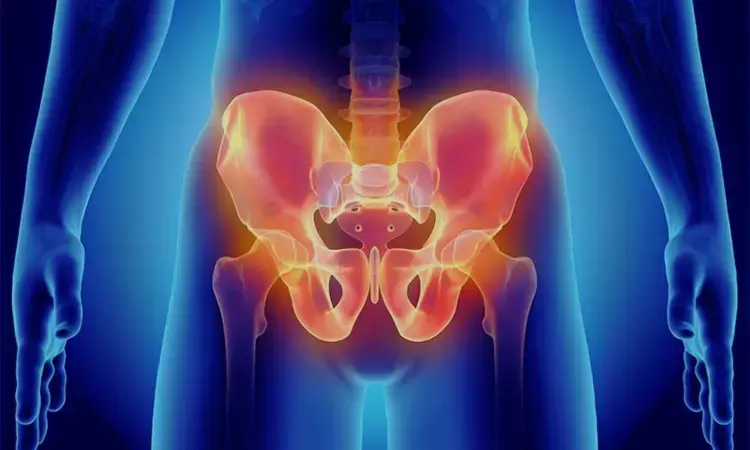- Home
- Medical news & Guidelines
- Anesthesiology
- Cardiology and CTVS
- Critical Care
- Dentistry
- Dermatology
- Diabetes and Endocrinology
- ENT
- Gastroenterology
- Medicine
- Nephrology
- Neurology
- Obstretics-Gynaecology
- Oncology
- Ophthalmology
- Orthopaedics
- Pediatrics-Neonatology
- Psychiatry
- Pulmonology
- Radiology
- Surgery
- Urology
- Laboratory Medicine
- Diet
- Nursing
- Paramedical
- Physiotherapy
- Health news
- Fact Check
- Bone Health Fact Check
- Brain Health Fact Check
- Cancer Related Fact Check
- Child Care Fact Check
- Dental and oral health fact check
- Diabetes and metabolic health fact check
- Diet and Nutrition Fact Check
- Eye and ENT Care Fact Check
- Fitness fact check
- Gut health fact check
- Heart health fact check
- Kidney health fact check
- Medical education fact check
- Men's health fact check
- Respiratory fact check
- Skin and hair care fact check
- Vaccine and Immunization fact check
- Women's health fact check
- AYUSH
- State News
- Andaman and Nicobar Islands
- Andhra Pradesh
- Arunachal Pradesh
- Assam
- Bihar
- Chandigarh
- Chattisgarh
- Dadra and Nagar Haveli
- Daman and Diu
- Delhi
- Goa
- Gujarat
- Haryana
- Himachal Pradesh
- Jammu & Kashmir
- Jharkhand
- Karnataka
- Kerala
- Ladakh
- Lakshadweep
- Madhya Pradesh
- Maharashtra
- Manipur
- Meghalaya
- Mizoram
- Nagaland
- Odisha
- Puducherry
- Punjab
- Rajasthan
- Sikkim
- Tamil Nadu
- Telangana
- Tripura
- Uttar Pradesh
- Uttrakhand
- West Bengal
- Medical Education
- Industry
PENG Block in Hip Surgery: No Pain Relief, Yet Quicker Recovery Times Seen, Study Finds

USA: Research on the pericapsular nerve group (PENG) block in total hip arthroplasty (THA) indicated no significant reduction in immediate postoperative pain or opioid use compared to conventional methods. However, patients who received the PENG block had shorter hospital stays and quicker mobilization times, likely influenced more by evolving discharge practices than direct pain management benefits.
The findings were published online in The Journal of Arthroplasty on July 15, 2024.
Total hip arthroplasty, commonly known as hip replacement surgery, aims to relieve pain and improve mobility in patients suffering from severe hip arthritis or injury. Managing postoperative pain is crucial for ensuring patient comfort and facilitating recovery. The pericapsular nerve group block is a newly developed regional anesthesia technique that provides targeted pain relief by blocking nerve signals in the hip joint capsule.
Against the above background, Kathleen D. Kinder, Department of Orthopaedic Surgery, University of Arkansas for Medical Sciences, Little Rock, AR, and colleagues aimed to assess postoperative pain scores and opioid usage before discharge following total hip arthroplasty using the posterior approach, comparing patients who received a PENG block with those who did not.
For this purpose, they conducted a retrospective study on patients undergoing elective, posterior approach THA at a single tertiary care academic center. They were divided into two groups: a study group (THA with PENG block in 2021; n = 66) and a control group (THA before PENG block implementation in 2019; n = 70).
The study led to the following findings:
· There were no significant differences in pain scores during postoperative minutes 0 to 59 (study group 6.8; control group 6.6) or during postoperative minutes 60 to 119 (study group 6.2; control group 5.6).
· There were no significant differences in total post-operative in-hospital morphine milliequivalent (MME) opioid consumption (study group 55.8 MMEs; control group 75.0 MMEs).
· The study group had a shorter length of stay (LOS) (study group 17.0 hours; control group 32.6 hours) and faster mobilization (study group 3.0 hours; control group 4.9 hours) than the control group.
"Our findings indicate that PENG block administration did not lead to reduced postoperative pain scores or decreased opioid consumption following total hip arthroplasty using the posterior surgical approach. Interestingly, patients in the study group experienced shorter LOS and faster mobilization times compared to the control group," the researchers wrote.
This trend, however, appears to be influenced by changes in hospital procedures that shifted towards same-day discharge for THA between 2019 and 2021, prompted by COVID-19 protocols," they concluded.
Reference:
Kinder KD, Stambough JB, Lowry Barnes C, Porter A, Mears SC, Stronach BM. Pericapsular Nerve Group Block Did Not Reduce Post-Operative Pain or Opioid Use After Total Hip Arthroplasty. J Arthroplasty. 2024 Jul 15:S0883-5403(24)00642-9. doi: 10.1016/j.arth.2024.06.043. Epub ahead of print. PMID: 39019412.
Dr Kamal Kant Kohli-MBBS, DTCD- a chest specialist with more than 30 years of practice and a flair for writing clinical articles, Dr Kamal Kant Kohli joined Medical Dialogues as a Chief Editor of Medical News. Besides writing articles, as an editor, he proofreads and verifies all the medical content published on Medical Dialogues including those coming from journals, studies,medical conferences,guidelines etc. Email: drkohli@medicaldialogues.in. Contact no. 011-43720751


